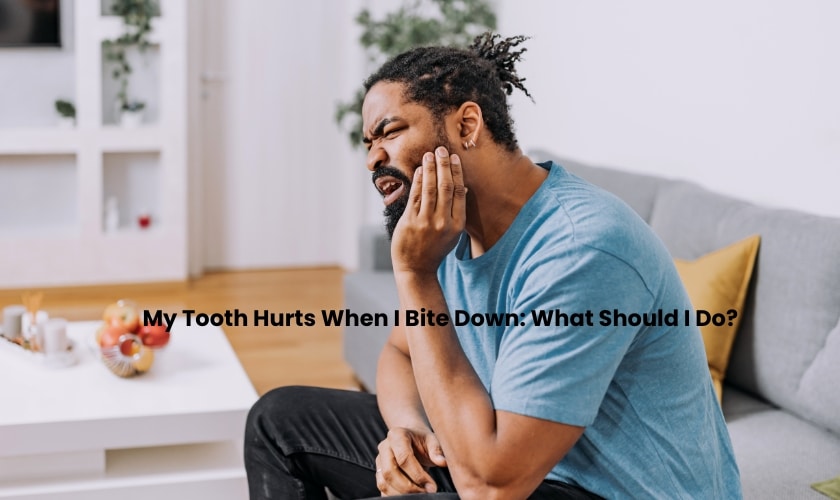
Tooth pain can be incredibly uncomfortable, especially when it occurs while biting down or touching the affected tooth. If you’ve ever experienced this sharp discomfort, you’re not alone. In this comprehensive blog post, we’ll explore the various reasons why your tooth might hurt when you bite down and provide insights into effective treatments. Whether it’s a cavity, a cracked tooth, or gum disease, understanding the underlying cause is crucial for maintaining optimal oral health.
What does it mean when you bite down and your tooth hurts?
Let’s delve into the common culprits behind tooth pain during biting:
1. Cavities
Cavities, also known as dental caries, are holes in the teeth caused by tooth decay. Bacteria in plaque feed on sugars in your mouth, leading to erosion of the hard outer shell of your teeth (tooth enamel). Cavities can affect any part of the tooth, including the roots. Treating cavities promptly is essential to prevent further complications such as infection and tooth loss1.
2. Cracked or Chipped Teeth
Physical damage to your teeth, such as cracks or chips, can result in tooth pain when you bite down. Causes of cracked teeth include accidents, falls, natural wear and tear, teeth grinding (bruxism), and chewing on hard substances. If you suspect a cracked tooth, seek professional evaluation and treatment1.
3. Periodontitis (Advanced Gum Disease)
Periodontitis occurs when gingivitis (inflammation of the gums) progresses to a more severe stage. The infection causes the gums to pull away from the teeth, leading to loosening of teeth and decay. Periodontitis affects nearly half of American adults over 30 and is a significant contributor to tooth loss. Proper management is crucial to prevent further damage1.
4. Malocclusion (Misaligned Teeth)
When your upper and lower teeth don’t align properly (malocclusion), it can lead to worn-down teeth, instability, and tooth pain. Malocclusion increases the risk of tooth decay, gum disease, and cracked teeth. Seeking orthodontic evaluation can help address alignment issues1.
5. Loose Fillings or Crowns
Dental fillings and crowns are common treatments for cavities and damaged teeth. However, if they become loose, poorly fitted, or broken, they can cause discomfort when biting down. Ensuring the stability of fillings and crowns is essential for preventing pain1.
Treatment Options When your tooth hurts during biting, consider the following steps:
1. Visit a Dentist: Professional evaluation is crucial to identify the underlying cause of your tooth pain. Your dentist Beaverton will recommend appropriate treatment based on the diagnosis.
2. Address Cavities: If cavities are the issue, your dentist may perform a filling or recommend other restorative procedures.
3. Repair Cracked Teeth: Cracked teeth may require bonding, crowns, or other restorative treatments to restore their integrity.
4. Manage Gum Disease: Treating periodontitis involves deep cleaning (scaling and root planing), antibiotics, and improved oral hygiene practices.
5. Orthodontic Solutions: For malocclusion-related pain, orthodontic interventions can help align your teeth properly.
6. Secure Loose Fillings or Crowns: Your dentist will assess and repair any loose or damaged fillings or crowns.
Conclusion
Tooth pain when biting down is a sign that something isn’t right. Don’t ignore it! Seek professional dental care promptly to address the issue and maintain your oral health. Remember, a healthy smile contributes to overall well-being.
